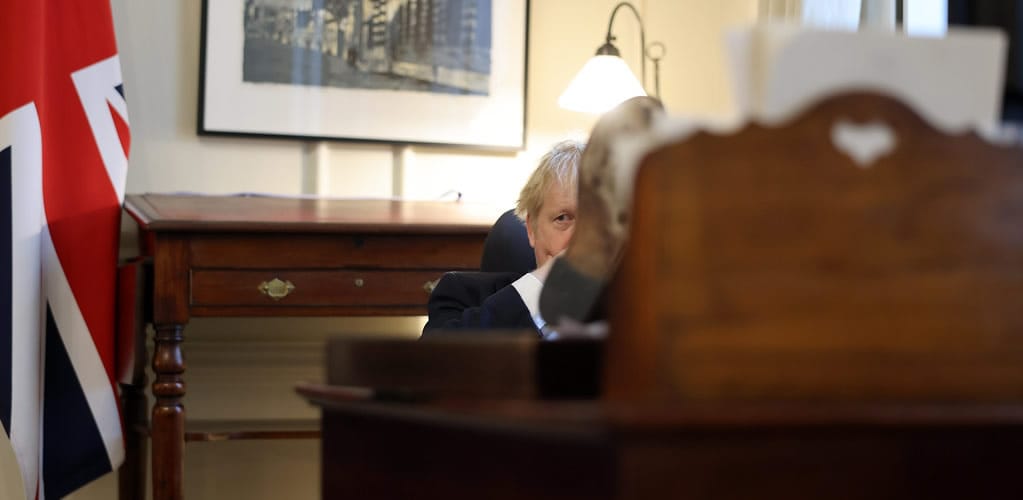Boris Johnson’s shocking disconnect from science during the COVID crisis: The blind leading the blind
For a nation grappling with an invisible enemy, COVID-19, leadership became the compass, the difference between weathering the storm and succumbing to its fury. Yet, at the helm of the UK stood Boris Johnson, a man whose relationship with science resembled a blind date gone disastrously wrong.

For a nation grappling with an invisible enemy, COVID-19, leadership became the compass, the difference between weathering the storm and succumbing to its fury. Yet, at the helm of the UK stood Boris Johnson, a man whose relationship with science, as revealed by the ongoing COVID Inquiry, resembled a blind date gone disastrously wrong.
D r Kit Yates, a Senior Lecturer in Mathematics and co-director of the Centre for Mathematical Biology at the University of Bath, paints a chilling picture of Boris Johnson in his recent analysis.
Two days under cross-examination at the COVID Inquiry exposed a chasm between the scientific rigour the pandemic demanded and Boris Johnson’s cavalier dismissal of evidence. His claim that the ill-fated “Eat Out To Help Out” scheme wasn’t presented as a risk-raiser (despite scientists being noticeably absent from its conception) rings hollow, mirroring a pattern of selective disregard for inconvenient truths. “This was probably because scientists were not consulted about Eat Out to Help Out before it launched”, Dr Yates explains.
Perhaps even more disturbing are the former PM’s handwritten annotations on a document detailing the debilitating symptoms of Long COVID. “Bollocks” and “This is Gulf War Syndrome stuff” scrawled across the page, suggesting not just disbelief but a callous dismissal of human suffering. As Dr Yates aptly notes, this perfunctory reaction seems indicative of Johnson’s approach to much of the crucial evidence during the pandemic. Of the politician’s apologies saying “I regret very much using that language…” and the follow-up comments “I should have thought of the possibility of a future publication”, Yates says “it makes it sound more like he was sorry that his callous remarks had come to light.”
Dr Yates’ observation about Johnson’s apology is spot-on. The juxtaposition of remorse for the language used with concern for potential publication paints a revealing picture. It suggests that Johnson’s regret wasn’t driven by genuine empathy for the hurt his words might have caused, but rather by the potential PR fallout of his comments becoming public. This aligns with Yates’ broader argument about Johnson’s disconnect from the human cost of his decisions and his prioritisation of image over substance.
CONTINUE READING...
Enjoy unlimited access now.
To get full access to this article,
simply become a member of PUBLIC SQUARE now.
By doing so, you will be supporting
our independent journalism.
MEMBERSHIP OPTIONS:
£3/month ∙ £5/month ∙ £7/month
You can cancel anytime.
BECOME A MEMBER
Already a member? Sign in here!
BENEFITS OF MEMBERSHIP:
✅ Read exclusive member-only articles
✅ Read our daily review of the UK front pages
✅ Receive every new article by email
✅ Access all our articles
✅ Get Special Discounts with our partners
✅ Join the conversation: Comment our articles
✅ Access our archives
✅ More importantly: Support independent journalism and keep the magazine going
Read more

— Donald Trump’s second inaugural speech showcased an authoritarian manifesto, blending messianic self-aggrandisement, disdain for democratic norms, and admiration for dictators, marking a profound shift toward personality-driven, divisive governance.

— Your daily roundup of the front pages of the main newspapers and magazines today in the UK... and beyond.

— In his fiery address, Donald Trump pledged bold, contentious reforms prioritising immigration, energy, and national sovereignty, reigniting “America First” rhetoric.

— Ambition, a powerful force, drives Donald Trump’s controversial return and Liz Truss’s misjudged rise. It highlights the need for a balanced ambition that prioritises purpose and the common good over reckless self-interest.
|
|

